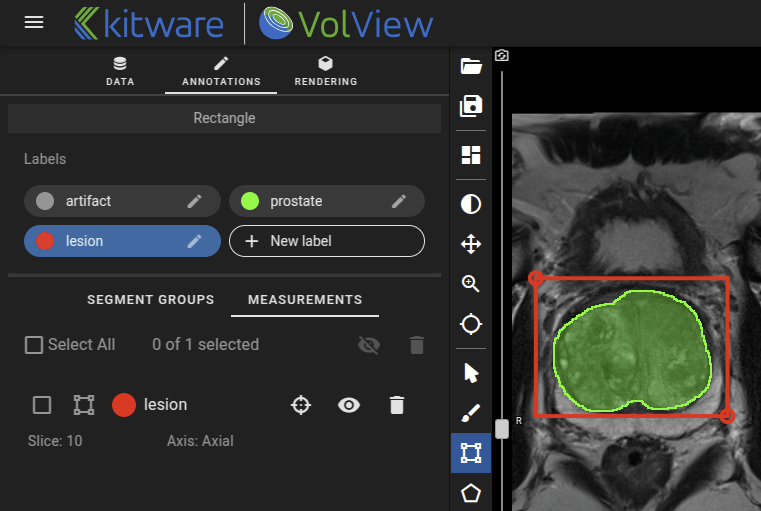Self-Hosted Annotation Platform for Medical Image AI Researchers

Summary
Advancing AI in medical imaging requires an annotation platform capable of securely connecting to existing dataset storage systems. A web-based, self-hosted solution ensures that sensitive medical data remains protected within a team’s existing infrastructure.
Challenges Facing Medical Image Annotation Projects
Medical image researchers face significant challenges securely accessing and managing datasets, navigating strict compliance requirements, overcoming fragmented storage systems, and addressing complex user access controls.
Data Privacy and Security Compliance
- Regulatory Burdens: Researchers must comply with strict laws (e.g., HIPAA, GDPR) regarding sensitive medical data.
- Risk of Breaches: Secure data transmission and access are crucial to prevent unauthorized access or leaks.
Fragmented Storage Systems
- Diverse Formats and Locations: Medical image datasets are often stored across multiple systems, making integration and access challenging.
- Compatibility Issues: Connecting annotation tools with different storage systems may require extensive customization.
User Access and Authentication
- Complex Access Controls: System admins must manage roles and permissions for teams of radiologists and engineers across datasets stored in different databases.
Self-hosted Annotation Solution Benefits
- Full Control Over Data: AI research teams can unlock existing datasets for new projects by controlling the software stack. Deploying within a company’s secure infrastructure ensures security and regulatory compliance without delays.
- Seamless Integration: Open-source platforms integrate with existing data access controls and storage systems, offering flexibility and adaptability.
- Enhanced Agility: Teams can rapidly incorporate new datasets, securely share annotation tasks with experts, and execute custom image analysis algorithms efficiently.
Software Stack
AI medical research teams are jump starting their projects with an annotation platform supported by Kitware. The teams deploy a Docker container configured with:
VolView: Radiological image annotation tool
- Runs in the annotator’s web browser.
- Designed with a familiar interface for radiologists.
- Supports various image file formats, including DICOM, NRRD, and NIFTI.
Resonant: Data management platform
- Handles data ingestion from cloud buckets and local file systems.
- Manages user permissions.
- Provides a REST API.
- Includes a job-running system for data preprocessing or analysis.
These tools are open source, unlocking these strategic advantages:
- Self-Hosting: Ensures data remains within your secure infrastructure.
- No Vendor Lock-In: Freely change your cloud provider or the software licence.
- Staffing Flexibility: Solve challenges quickly via internal or external workforce capacity.
Support from Kitware
Kitware’s open-source experts are here to help:
- Deploy your self-hosted annotation solution.
- Customize annotation workflows for your unique project.
- Navigate FDA regulations.
Why Kitware
- Lead developer of Resonant and VolView open source tools.
- Partnering with researchers for 25+ years.
Avoid cookie-cutter proprietary products. Partner with Kitware to solve your team’s unique challenges.
Learn More
To see how a self-hosted annotation platform can speed your team’s research, schedule a chat with a Kitware expert.